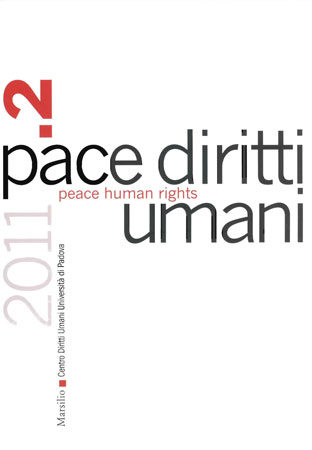Collections

Le limitazioni al diritto di voto delle persone con disabilità intellettive dovrebbero essere rimosse. In margine alla dichiarazione interpretativa dell'ottobre 2010 della Venice Commission
- Contained in
- Pace diritti umani - Peace Human Rights, 2/2011
- Pubblication type
- Articolo / Saggio
- Pages
- 27-40
- Language
- IT
All Limitations to the Right to Vote of Persons with Mental Disabilities Should Be Removed. A Comment to the 2010 Interpretative Declaration of the Venice Commission
In October 2010, the Venice Commission of the Council of Europe issued a declation interpreting the 2002 Code of Good Practice in Electoral Matters in which is took the position that a «deprivation of the right to vote and to be elected [may be] imposed by an individual decision of a court of law because of proven mental disability». The article argues that such a position is untenable, because it runs against the basic principle of nondiscrimination enshrined in the 2006 Convention on the Rights of Persons with Disabilities. The Convention indeed does not allow for any special status of persons with intellectual disabilities and boldly affirms that all persons with disabilities are entitled to all human rights. They are in principle to be put in the position to exercise effectively all human rights, with the assistance, if need is, of legal, practical, and technological supports, including reasonable accommodations, conducive to this end. Any blanket exclusion – as it exists in many European states (in Italy before the 1978 Basaglia Reform) – would be contrary to the current human rights standard, as the European Court of Human Rights has adjudicated in Kiss v. Hungary (2010). However, also a judicial ascertainment of lack of voting competence would be in violation of human rights, because intrinsically discriminatory. In fact, only individuals with a background of mental illness or disability would realistically sustain such a test. Moreover, the deprivation of the right to vote, which is rightly perceived as a fundamental aspect of citizenship and full participation of the individual to the community, is a stigma that contribute to the objective and subjective exclusion of this person from the society, as well as the symptom of a scientifically flawed conception of mental disability. The author reminds some recent documents of the UN Committee on the Rights of Persons with Disability and claims for a rapid revision of the Venice Commission's position on the issue.

